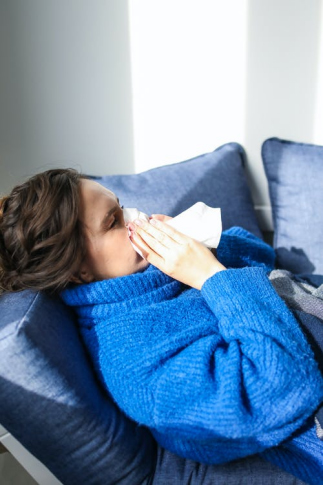How to Tell Which COVID-19 Variant You Have

A coronavirus is a group of viruses that may cause respiratory illnesses. SARS or severe acute respiratory syndrome, common cold, or MERS (Middle East respiratory syndrome) are some of the examples that cause sickness in humans.
In 2019 December, the latest strain of this virus (COVID-19) was found in Wuhan, China. Since then, the COVID-19 has spread across all the continents, excluding Antarctica.
How does this virus spread?
The most common way for an individual to acquire a coronavirus is through contact with infected individuals or contaminated surfaces. The virus can also be transmitted through the air by the respiratory droplets of an infected person.

That’s why the most common precautions include social distancing and proper hygiene and cleaning practices.
What are the general symptoms?
Coronaviruses are best known for causing respiratory infections, including pneumonia. While these viruses do not normally cause life-threatening diseases, they can lead to complications such as septicemia and death if untreated.

What is the treatment?
There is no specific antiviral medication that can effectively treat coronavirus infections. Symptoms should be treated with appropriate antibiotics for bacterial Infections. The main method of prevention of the spread of the coronavirus is to monitor infected individuals and limit their contact with others.
Basic precautions can also be taken, such as washing hands with soap and water, avoiding touching eyes, nose, and mouth, disinfecting surfaces with a bleach solution of 1 tablespoon bleach to 1 cup water.

How can I avoid contracting it?
Basic precautions include washing hands frequently with soap and water. Individuals should avoid sharing food or drinks. People should also avoid close contact with people who show symptoms of COVID-19, including coughing or sneezing. Anyone who has been exposed to the virus should immediately seek medical attention for their condition to be monitored closely.
Moreover, the use of face masks and hand sanitizers is extremely important when you’re in public. Sanitizing your gadgets like your phone and laptop from time to time may also help prevent the spread of coronavirus.
What are its different variants?
Since its outbreak, there’ve been several variants that emerged as the virus mutated over time. The most common among them are SARS-cov-2 Alpha, SARS-cov-2 Beta, and SARS-cov-2 Delta.
Let's see what does each variant entails.

SARS-cov-2 Alpha or The Alpha Variant
This variant was first detected in the UK in November 2020. There is no uncertainty that this new variant had created fear and tension in places where personal contact with other people has intensified because of urbanization as well as increased international travel.
The Centers for Disease Control and Prevention (CDC) has reported that human infections with this virus have been mainly associated with localized outbreaks, while most cases can be traced to close contact within families and communities.
CDC has stated that the SARS-cov-2 Alpha variant spread rapidly, especially in developing countries where public health systems are weak. In these places, the virus spreads from person to person without any form of treatment from medical professionals or traditional healers thus creating a major threat to public health in these countries.
CDC had stated that the most effective method of reducing the numbers of SARS-cov-2 Alpha variants is through early detection and isolation of infected persons. While most cases involve close contact with infected individuals, the virus can be known to spread through contaminated food or water and droplets.
Symptoms
The CDC has stated that because there are no particular signs or symptoms of the SARS-cov-2 Alpha variant, it can easily be confused with other respiratory illnesses such as influenza or pneumonia.
The common symptoms of this variant are:
- Fever
- Fatigue
- Cough
- Tightness of chest (in severe cases)
- Dropping oxygen levels (in severe cases)
The incubation period of the SARS-cov-2 Alpha variant (the time between when it enters the body and when symptoms appear) ranges from 1 to 14 days. Although there were no known cures or vaccines for this virus, CDC has reported that treatment for SARS involved quarantine and isolation for the patient to restrict the virus from spreading.
However, since the advent of vaccines, the Alpha variant can be avoided if you're completely vaccinated with FDA-approved vaccines like Moderna or Pfizer.
It has also been stated that infection with the SARS-cov-2 Alpha variant does not confer immunity against future infections with this virus because it’s believed that secondary infections are likely to occur in previously infected individuals.
SARS-cov-2 Beta
This variant was first identified in South Africa. The current data doesn’t show that this variant is more severe than other variants like Alpha. And it can be avoided by taking the FDA-approved vaccines that are now available.
As far as the treatments are concerned, the monoclonal antibody treatments are not as effective against the beta variant. Its symptoms are the same as the Alpha variant; however, they might be more severe in the beginning and tend to wear off with good medical care.
SARS-cov-2 Delta
The SARS-cov-2 Delta Variant belongs to the coronavirus family has been known to cause all types of respiratory illnesses in humans. This virus was first observed in India and then in the UK and the US. The delta variant spreads 50% faster than Alpha and has more severe symptoms
Symptoms
The symptoms for the Delta variant include:
- Headache
- Fever
- Disturbed bowel movement
- Fatigue
- Vomiting
- Sore throat
Although the FDA-approved vaccines protect the contraction of most of the coronavirus variants, you can still contract the delta variant even if you're completely vaccinated.
If you’re experiencing any of the stated symptoms, even if you’re fully vaccinated, you must consult your doctor immediately.
Consult COVID Online Doctor at TelMDCare!
At TelMDCare, we offer telehealth services that are perfect for patients with coronavirus as it allows them to stay in quarantine and isolation and let them consult their doctor from the comfort of their homes!
You can book an appointment with our expert physicians, who can diagnose and help with Treatments for COVID-19 symptoms. We offer Virtual doctor appointment for covid; you can book your virtual healthcare appointments and consult our Doctor on call for covid.
Give us a call today!